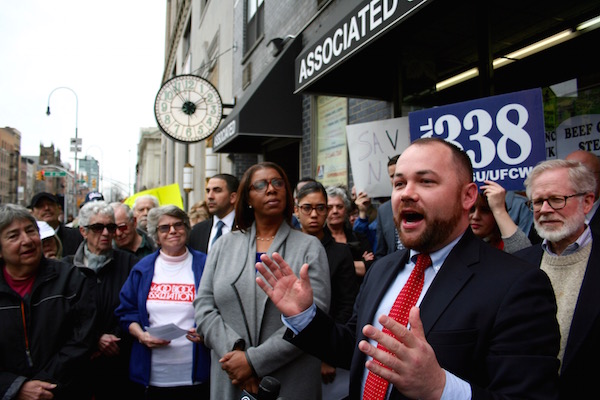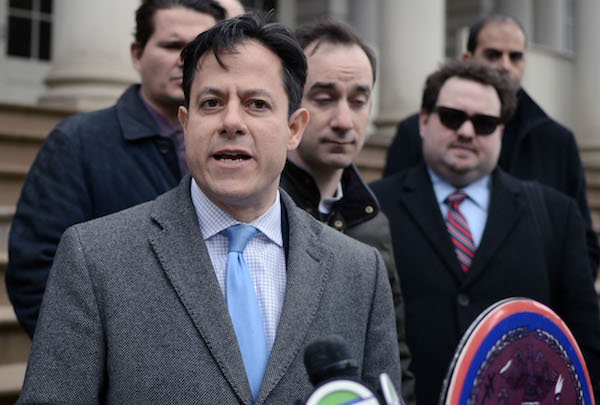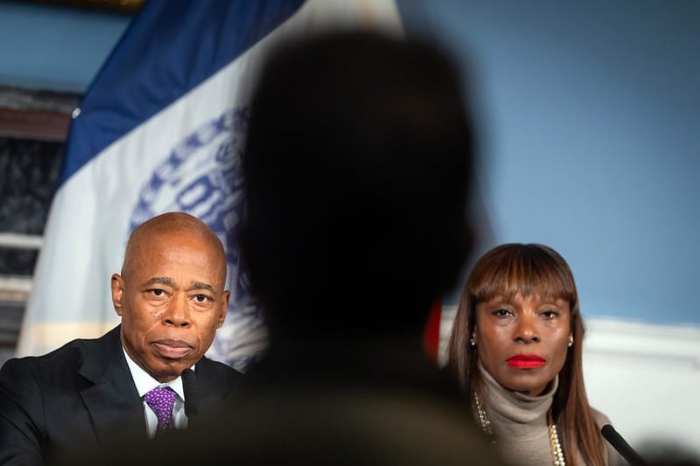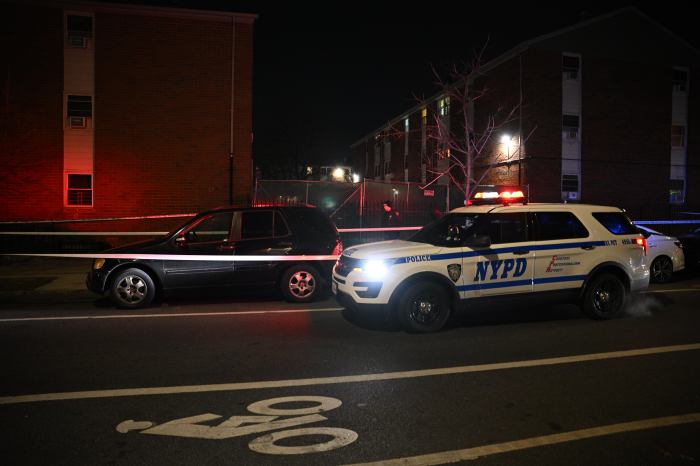
BY JACKSON CHEN | City Councilmembers across Manhattan are calling for reform of a decades-old commercial rent tax they say is burdening many local businesses into extinction.
The commercial rent tax (CRT) was created in 1963 as a revenue generator that charges businesses paying more than $250,000 in annual rent a 3.9 percent levy. In the ’90s, the CRT was restricted to Manhattan businesses below 96th St., followed by another amendment that exempted part of Lower Manhattan after 9/11.
Calling the tax “out of whack and antiquated,” East Side Councilmember Dan Garodnick held a rally on Mon., Feb. 13 to build support for a package of bills that were introduced to reform the CRT. The councilmember, who chairs the Council’s Economic Development Committee, said that the tax currently penalizes many small businesses, including restaurants, hardware stores, and boutiques.
“You ever wonder why we’re being overrun by banks and chain drug stores in Manhattan?” Garodnick asked. “Well, this tax on commercial rent is one of your prime culprits.”
The first bill, sponsored by Garodnick and Upper West Side Councilmember Helen Rosenthal, would increase the threshold to pay the CRT to $500,000 from its current $250,000. Garodnick said they looked at a variety of possible minimum rent levels before settling on $500,000 — a figure that would exempt up to 4,000 local businesses currently hit with the levy.

The CRT, Garodnick said, currently generates around $780 million and earlier estimates from the Council showed the proposed change would cost the city $55 million a year.
Two others in the series of bills, sponsored by Manhattan Borough President Gale Brewer and Councilmember Corey Johnson, would provide exemptions from the CRT for billboards that advertise theatrical works and for affordable supermarkets, regardless of the rent they pay.
Rosenthal is joined by Lower Manhattan Councilmember Margaret Chin in another bill that would require the Department of Finance to conduct annual reports on what businesses are paying the CRT.
Rosenthal said she is acutely aware of the CRT’s impact on businesses in her
Upper West Side district and emphasized that those small enterprises provide job to workers who come from all over the city.
The tax hardship hits business spanning the Upper East and West Sides, as well as certain areas in Lower Manhattan and neighborhoods in Johnson’s district including Chelsea, Hell’s Kitchen, and Times Square.
“If you live in a neighborhood and the locksmith closes, or the affordable supermarket closes, or the shoe repair store closes, or the bodega closes, or the local pharmacy… closes, that affects your quality of life in your neighborhood,” Johnson said. “It just doesn’t make any sense that for a small portion of the city we have this tax.”
Andrew Rigie, the executive director of the New York City Hospitality Alliance, whose members include restaurants, bars, lounges, and hotels, said the package of bills doesn’t completely fix the problem, but is a step in the right direction.
“It is very depressing when every day it seems like you open a newspaper, listen to the radio, and one of our beloved local businesses has shut down,” Rigie said. “We have this incredible bill that will help 4,000 businesses right here in Manhattan get some desperate financial relief.”
Rigie urged Mayor Bill de Blasio to support their efforts and for other councilmembers to join on to the efforts Garodnick is leading.
When asked about the mayor’s and his fellow councilmembers’ views on the proposed measures, Garodnick said there was some openness and that he believes that support for reforming the CRT will build.
“We should do away with it entirely,” Garodnick said of the CRT. “We’re taking steps today to start that process, trying to deliver some level of immediate fairness to these small businesses for the sake of the businesses themselves, the communities they’re serving, and the people from all around the city who work in them.”



































